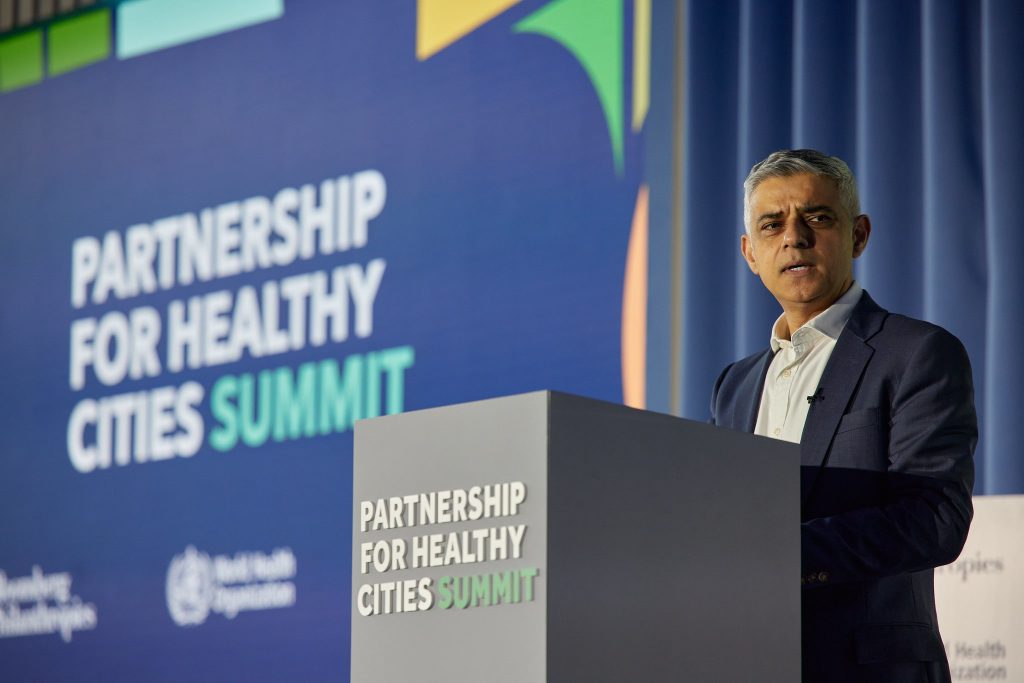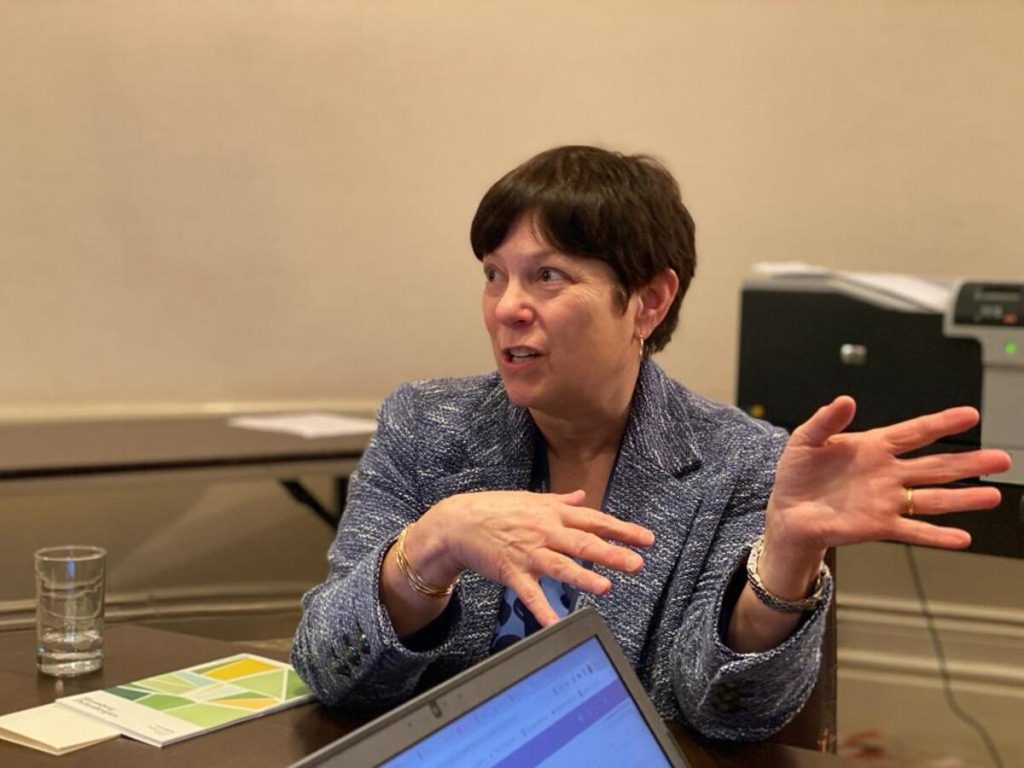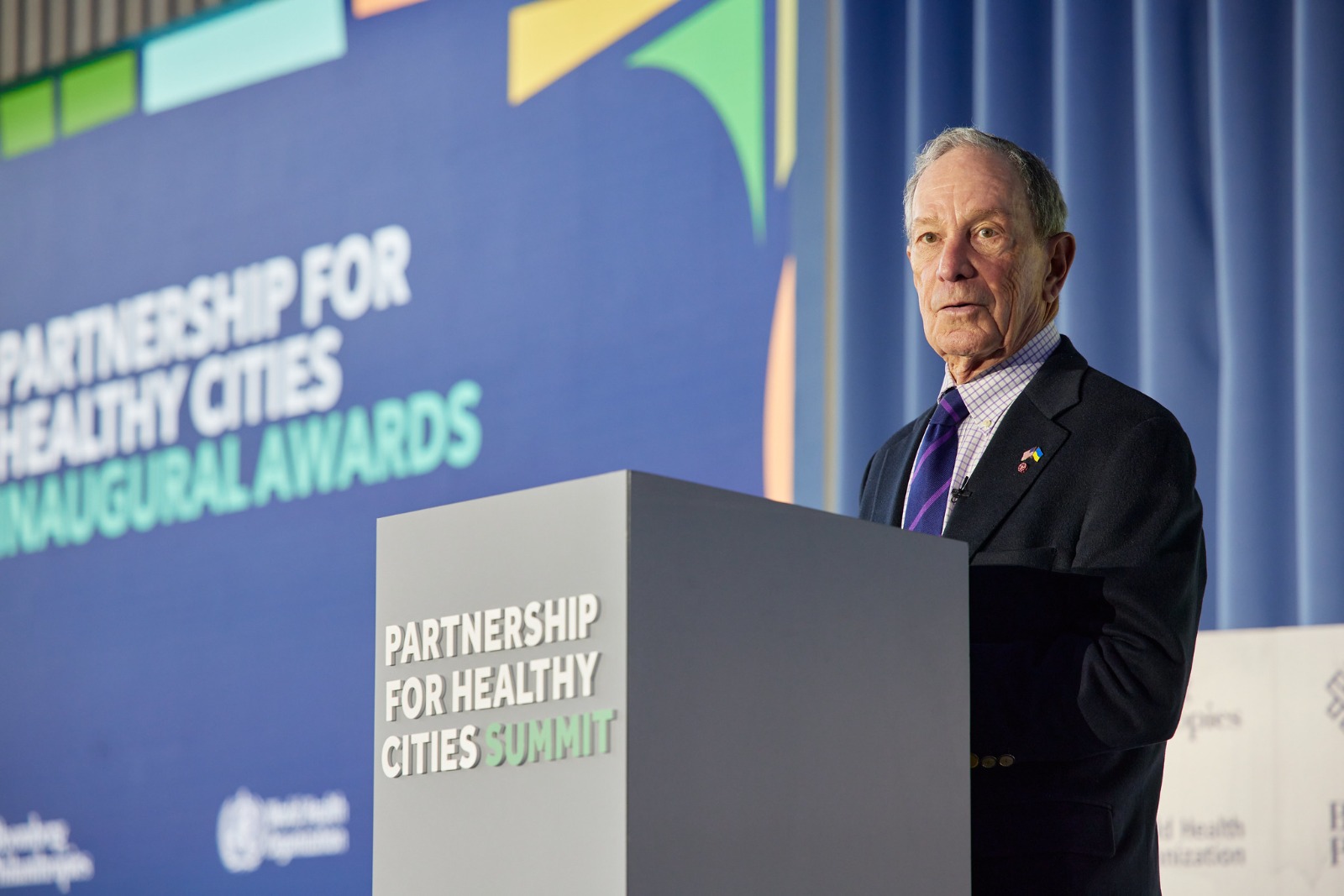LONDON, March 17 – Michael R. Bloomberg related how a smoking prohibition in bars and restaurants that he had implemented as New York City mayor actually increased business and tourism.
Bloomberg, who was elected the 108th mayor of New York City in the United States for three terms from 2002 to 2013, noted that many policies that generated the most opposition often turned out to be the most effective and popular, citing the smoking ban that he passed in 2002 as an example.
“When we first proposed banning smoking in bars and restaurants, a lot of people predicted disasters. They said people would stop going out to eat and drink and tourists would stop coming to New York and businesses would fold,” Bloomberg said in his welcome remarks at the plenary of the inaugural Partnership for Healthy Cities (PHC) Summit in London, the United Kingdom, Wednesday.
“But the naysayers couldn’t have been more wrong. The numbers of bars and restaurants increased; tourism reached record highs and the policy grew phenomenally popular. Nobody would ever go back, and that was true even for the restaurant and bar owners who fought tooth and nail.
“As soon as they saw what happened – people finished their meal and left so they could turn over the table, and they never made any money from smoking, and they were always worried about being sued for an unhealthy environment for their employees – that went away. So it was a win-win-win for everybody.”
Bloomberg also recalled a conversation he had with then-New Jersey governor Christine Todd Whitman when he initiated the smoking ban, who thanked Bloomberg and told him: “‘It’s the best thing that ever happened to New Jersey. Everybody’s going to come across the Hudson River and eat in New Jersey’.”
About three months later, Whitman told Bloomberg that she too introduced a bill to ban smoking in New Jersey that neighbours New York City.
“I said, ‘well, Christine, that’s great. Why’d you do that?’ She said, ‘because my son has to spend a night in New Jersey since you put the ban in’,” Bloomberg recalled, triggering laughter from the audience.
“Clean air is something that really matters, whether you’re working on the streets or sitting down at a restaurant or at the pub, what goes into our bodies really does make a difference.
“I’m glad to say that more cities and countries have begun passing smoking bans and smoking-free laws after we passed them in New York. And our foundation has been working to help those measures spread around the world, including through this partnership, just as our success in New York gave other cities the data to act,” added Bloomberg.
Bloomberg is founder of Bloomberg Philanthropies, one of the hosts of the PHC summit that was co-organised together with the World Health Organization (WHO) and global public health organisation Vital Strategies with London Mayor Sadiq Khan.
Five Cities Recognised for Achievements in Preventing NCDs and Injuries

The PHC Summit – which brought together mayors and officials from more than 50 major cities in the partnership – recognised five global cities for their achievements in preventing non-communicable diseases (NCDs) and injuries.
The five cities, which received a 2023 Partnership for Healthy Cities Award and US$150,000 each to further their work with the partnership, are:
- Athens, Greece for increasing access to the opioid overdose reversal agent, naloxone, at community-based organisations and among health care professionals. The city also started researching causes of death among people who inject drugs to better understand the impact of the overdose crisis;
- Bengaluru, India for their efforts in tobacco control, specifically, reducing smoking in public places and improving compliance with existing mandates on public smoking bans;
- Mexico City, Mexico for improving road safety and safe and active mobility by launching a bike path on a busy road that led to a 275 per cent increase in cyclists; implementing a shared lane for cyclists and buses separate from cars; establishing loading and unloading areas; and optimising design and management of roads close to schools;
- Montevideo, Uruguay for establishing nutritional standards for the preparation and sale of food in government agency offices and some public universities, for focusing on sodium reduction policies and developing media campaigns and educational materials; and
- Vancouver, Canada for making public health data more inclusive and accessible by launching an online public health data tool that tracks population health indicators and working with urban Indigenous communities to better inform data management.
“I’m delighted to be joining mayors from around the world today to tackle some of the biggest issues facing our cities. The health of our citizens is a city’s greatest asset, so I’m taking bold steps to invest in the health of Londoners, such as restricting junk food advertising across the Transport for London network and expanding the Ultra Low Emission Zone, which will mean five million more Londoners will be able to breathe cleaner air,” said London Mayor Sadiq at the summit.
“These initiatives are not only improving the health of Londoners, but alleviating pressure off our health service and ensuring that future generations can thrive. Improving the health of Londoners will always be at the heart of my vision to build a safer and more prosperous London for everyone.”
Vital Strategies president and CEO José Luis Castro described cities as “places where health can be produced or compromised”.
“We applaud the work of urban leaders around the globe in their efforts to create healthier, stronger and more equitable cities. We are eager to continue our work supporting cities with the tools and resources needed to bring proven solutions that prevent noncommunicable diseases and injuries to fruition.”
Get Buy-In For Anti-Smoking Measures Through Public Education Campaigns

Dr Kelly Henning, who heads Bloomberg Philanthropies’ Public Health programme, stressed that tobacco control required a multi-pronged approach involving both federal and local governments.
The epidemiologist trained in internal medicine, infectious diseases, and public health said raising the price of tobacco, under the federal government’s jurisdiction, was the “most powerful thing we can do to reduce tobacco use”.
Secondly, Dr Henning touted health warning labels on cigarette packs.
She also cited bans on tobacco advertising and creating smoke-free public places that can be implemented by local governments. In Malaysia, these still fall under federal jurisdiction.
“All along, with all of those policies, you really have to bring the public with you through public education campaigns. You want that buy-in. If you can get these laws in place effectively, the public very much supports them. Most people don’t smoke, and they don’t want people smoking on them,” Dr Henning told a group media interview at the sidelines of the PHC Summit.
“So you can really get a lot of buy-in from the public. But you have to take all these things under consideration as you work on tobacco control.”
CodeBlue pointed out that all of these measures have been undertaken in Malaysia, but the decline in smoking prevalence has still been slow over the years, reaching 21.3 per cent national smoking prevalence in 2019 among Malaysians aged 15 years and above.
By gender, four in 10 men in Malaysia currently smoke.
When CodeBlue asked Dr Henning if public education campaigns should paint smokers as criminal offenders, the public health expert disagreed: “No, we never do that”.
“Smokers are addicted to nicotine. Most smokers want to quit. So one needs to take all those things into consideration. The public is often very persuaded by viewing the impact, the medical impact of smoking,” she said.
“So many countries have run ads, for example, showing people with nasopharyngeal cancer who have to have a tracheostomy, or people have had other impacts, medical impacts of smoking, those can be quite impactful.
“It really depends on the context in the particular country, but any kind of ads that one runs has to be tested to make sure they’re understood well and they have impact among the population.
“But tobacco control is very important because tobacco is still the leading agent of death in the world – it impacts cardiovascular deaths, it impacts cancer deaths, and the numbers are very, very large, seven to eight million deaths a year, a billion deaths this century if we don’t have progress. So it’s a very important thing to work on.”
The unity government in Malaysia is currently working on re-tabling the Control of Tobacco Product and Smoking Bill 2022 in Parliament that, among others, seeks to prohibit cigarettes and tobacco and vape products for the next generation born from 2007, known colloquially as the generational end game (GEG). Health Minister Dr Zaliha Mustafa held briefings on the bill in Parliament last Tuesday for government and Opposition MPs separately.








